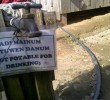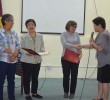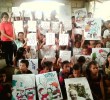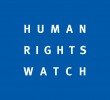The Accra action agenda (AAA) endorsed by ministers at the Third High Level Forum on Aid Effectiveness in Accra, Ghana makes little real progress towards making aid more developmental.
The AAA fails to address the most essential concerns with the greatest impact on development in the Third World: democratic ownership of aid, policy conditionalities, tied aid and the foreign debt burden. The AAA instead gives undue attention to technical procedures in aid delivery and management to divert from its glaring inattention to the development issues that matter the most.
The Paris Declaration of 2005 raised the promise of improving the global aid regime. However the AAA supposedly aimed at deepening implementation of the declaration underscores the deep-seated resistance of donors to genuine reforms in the aid system. Donors have effectively still reserved the right to set conditionalities. They have not committed to eliminating tied aid. They have avoided making concrete, measurable and time-bound commitments to building democratic ownership of aid and development policies. Donors have completely avoided the vital issue of crushing debt burdens.
Yet “free market” policy conditionalities have gravely harmed Third World agriculture, stifled industrial progress, and worsened poverty and unemployment. Tied aid has assured donor country benefits at the expense of local needs. Ownership has been claimed more by donors and recipient country elites than grassroots communities. And debt service by the Third World is many times the amount they receive in official development assistance (ODA)
It is an opportunity that the AAA has been compelled to at least acknowledge these issues and it is welcome that civil society organizations (CSOs) have an increased presence compared to previous years. However this opportunity will be meaningless and the CSO presence will be mere tokenism if there are no clearly defined and effective reforms in the aid system.
AidWatch Philippines and IBON Foundation are among the CSOs participating in the Third High Level Forum that demand clearly defined and time-bound commitments to accomplish various targets by 2010. At the minimum this includes: 1) a broad but clear definition of ownership such that citizens, CSOs and elected officials are central to the aid process at all levels; 2) measurable commitments on the predictability of aid flows by 2010; 3) elimination of tied aid by 2010, with food aid and technical assistance no longer donor-defined; 4) development and implementation of new standards for transparency by 2009 including making information available to the public; and 5) an end to policy conditionality.
ODA clearly remains donor-driven with the main objective of serving donor foreign and economic policy interests. Developmental outcomes, if any, are oftentimes just incidental and only to the extent that donor commercial, political and diplomatic interests are not threatened. In Accra for instance, the United States used its clout to dilute language on ownership and conditionalities while Japan opposed proposals to untie aid. Recipient governments in turn comply rather than jeopardize aid flows and possibly important resources for development.
The challenge remains for the people and governments of underdeveloped countries to reject false aid that does not genuinely reduce poverty, advance gender equality, uphold human rights and promote environmental sustainability. Aid must also not be a matter of charity from rich to poor countries but of people achieving their right to development with all the resources at the world’s disposal. (end)
AidWatch Philippines is a national network of grassroots-based non-government groups working on ODA issues in the country. It has over 150 members in more than 50 provinces nationwide, including 10 national networks, and regional formations.
AidWatch Philippines aims to deepen relationships and develop various levels of collaboration between NGOs on aid-related issues and concerns. It also looks forward to constructive engagement with official government and donor agencies on the basis of fundamental development principles.
For reference:
Dr Giovanni Tapang
Convenor , AidWatch Philippines
IMPORTANT NOTICE: INBOX is an archive of press releases, statements, announcements, letters to the editors, and manifestos sent to Davao Today for publication. Please email your materials to davaotoday @ gmail.com. Davao Today is not responsible for the content of these materials. The opinion expessed in these items does not reflect those of Davao Today and its staff. Please refer to our terms of use/disclaimer.










